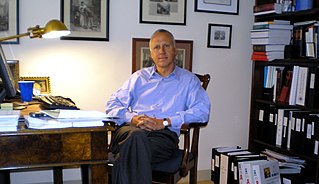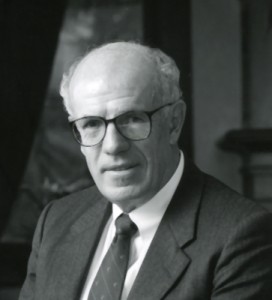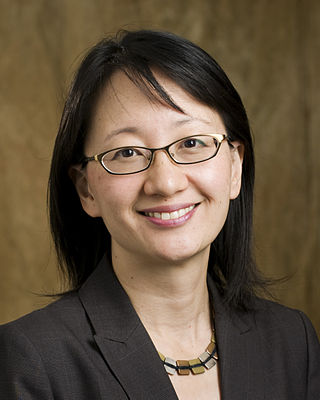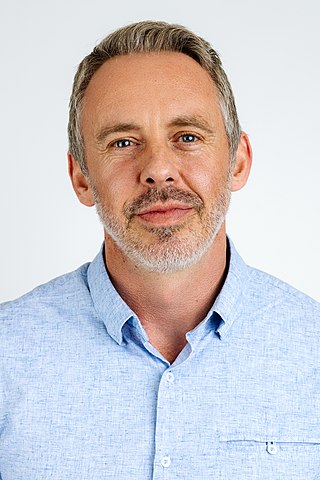
Dr. David N. Sundwall was a primary care physician and served as the executive director of the Utah Department of Health from January 2005 to January 2011.

Dr. David N. Sundwall was a primary care physician and served as the executive director of the Utah Department of Health from January 2005 to January 2011.
May 22, 1941 - April 8, 2024
Sundwall was born and raised in Murray, Utah. Professional opportunities took Sundwall and his family to Boston, MA, San Francisco, CA, Silver Spring, MD, and, in 2004, back to Murray, UT.
Sundwall followed several family members into the medical profession, including his father, Dr. Val Sundwall who had his own private clinic in Murray, UT. Other role models include his great uncles Dr. Olaf Sundwall and Dr. John Sundwall, and brother, Dr. Peter Sundwall.
Dr. Sundwall earned his medical degree at the University of Utah College of Medicine and completed further training at the Harvard Family Medicine Residency Program. He remained on the faculty of the University of Utah School of Medicine as Associate Professor in the Department of Family and Preventive Medicine until his death. Through his career, Sundwall maintained his clinical connection to patients. He volunteered a half day each week at the HealthCare for Homeless Project (now Unity Health Care [1] ), a public clinic near the U.S. Capitol in Washington, D.C. for 17 years. After returning to Utah, Sundwall volunteered at the now defunct Health Clinics of Utah [2] (defunded [3] by the Utah State Legislature in 2020) and, until December 2023, at the Maliheh Free Clinic [4] and the Midvale Community Clinic. [5]
Dr. Sundwall was President of the American Clinical Laboratory Association [6] (from 1994 to 2003) before acting as ACLA's Senior Medical and Scientific Officer. He holds three medical school faculty appointments, including as a Clinical Associate Professor in the Department of Community and Family Medicine at Georgetown University College of Medicine in Washington, D.C.
He held numerous positions in the public health sector: from 1988 to 1994, he was Vice President and Medical Director of American Healthcare Systems, [7] an alliance of not-for-profit multi-hospital systems. Prior to that appointment, he was Administrator in the Health Resources and Services Administration.
Dr. Sundwall served as an advisor, task force member and chairman of numerous committees involved with public health policy and quality including those connected with the Centers for Disease Control and Prevention and the Food and Drug Administration.
Sundwall's federal experience included serving as the Assistant Surgeon General in the Commissioned Corps of the U.S. Public Health Service. During this period, he had adjunct responsibilities at the Department of Health and Human Services (HHS) including: Co-Chairman of the HHS Secretary's Task Force on Medical Liability and Malpractice, and was the HHS Secretary's Designee to the National Commission to Prevent Infant Mortality.
Dr. Sundwall is an author or coauthor of numerous publications in peer-reviewed medical literature. He also contributed chapters to many books covering a broad spectrum of healthcare issues. He iswaslicensed to practice medicine in the District of Columbia and Utah, and was a member of the American Medical Association (AMA) and the American Academy of Family Physicians (AAFP). He was on the board of Trustees at Spelman College in Atlanta, GA.
Dr. Sundwall was broadly recognized for his professional achievements and contributions to healthcare policy and advocacy.
In 1981, Sundwall moved to Washington to work as director of the health staff of the U.S. Senate Labor and Human Resources Committee, chaired by Orrin Hatch. Hatch assembled an expert staff to work on health issues that included Sundwall, future FDA Commissioner David Aaron Kessler, future Surgeon General Antonia Novello, and lobbyist Nancy Taylor. Even during the Reagan administration, the group was a hotbed of activity on organ transplantation, orphan drugs, food safety, tobacco safety and regulation, professional training for healthcare workers, cancer research and a variety of other issues.
With the assistance of Dr. Ronald Preston (who would later be Massachusetts Secretary of Health and Human Services under Gov. Mitt Romney) the group pushed for greater awareness of the science behind the harmful effects of ionizing radiation to "downwinders." In a series of hearings and associated bills, the group worked to compensate or create access to healthcare for Americans, chiefly in Utah, injured from radioactive fallout from atomic bomb tests and to exposure to radiation through uranium mining and refining operations.
After 23 years of working in various government and private sector health positions in Washington, D.C., Sundwall returned to Utah to lead the Utah Department of Health (UDOH). His nomination to serve as the Executive Director of the UDOH by Governor Jon Huntsman, Jr., was confirmed by the Utah State Senate on January 17, 2005.
Sundwall continued to serve as Executive Director of UDOH under Gov. Gary Herbert, who succeeded Huntsman when Huntsman was appointed Ambassador to China in 2009. Sundwall resigned as director in January 2011. [8]

Health informatics is the study and implementation of computer structures and algorithms to improve communication, understanding, and management of medical information. It can be viewed as branch of engineering and applied science.

Louis Wade Sullivan is an active health policy leader, minority health advocate, author, physician, and educator. He served as the Secretary of the United States Department of Health and Human Services during President George H. W. Bush's Administration and was Founding Dean of the Morehouse School of Medicine.

The Agency for Healthcare Research and Quality is one of twelve agencies within the United States Department of Health and Human Services (HHS). The agency is headquartered in North Bethesda, Maryland, a suburb of Washington, D.C.. It was established as the Agency for Health Care Policy and Research (AHCPR) in 1989 as a constituent unit of the Public Health Service (PHS) to enhance the quality, appropriateness, and effectiveness of health care services and access to care by conducting and supporting research, demonstration projects, and evaluations; developing guidelines; and disseminating information on health care services and delivery systems.
Athletic training is an allied health care profession recognized by the American Medical Association (AMA) that "encompasses the prevention, examination, diagnosis, treatment, and rehabilitation of emergent, acute, or chronic injuries and medical conditions." There are five areas of athletic training listed in the seventh edition (2015) of the Athletic Training Practice Analysis: injury and illness prevention and wellness promotion; examination, assessment, diagnosis; immediate and emergency care; therapeutic intervention; and healthcare administration and professional responsibility.

Mark Barnes is an American attorney serving as a partner in the Ropes & Gray health care and life sciences practice based in Boston. He was director of policy for the New York State Department of Health AIDS Institute, and associate commissioner for medical and legal policy for the New York City Department of Health under the mayoralty of David Dinkins. He worked on the National Health Care Reform Task Force in the Clinton Administration. He also has served as executive vice president of St. Jude Children's Research Hospital and founded and directed the Harvard University HIV/AIDS treatment programs in Africa. His current legal and advocacy work includes a focus on the fields of research compliance, the ethics and regulation of clinical trials, medical privacy, and "big data" research. He is past president of the New York State Bar Association's Health Law Section.

Homer Richards Warner was an American cardiologist who was an early proponent of medical informatics who pioneered many aspects of computer applications to medicine. Author of the book, Computer-Assisted Medical Decision-Making, published in 1979, he served as CIO for the University of Utah Health Sciences Center, as president of the American College of Medical Informatics, and was actively involved with the National Institutes of Health. He was first chair of the Department of Medical Informatics at the University of Utah School of Medicine, the first American medical program to formally offer a degree in medical informatics.

The University of Utah Hospital is a research and teaching hospital on the campus of the University of Utah in Salt Lake City, Utah. It serves as a major regional referral center for Utah and the surrounding states of Idaho, Nevada, Wyoming, Montana and Colorado. Since 1965, it has grown to become a health care system known as University of Utah Health, which includes five hospitals and twelve community health centers. University of Utah Health is praised for the following specialties: cardiology, geriatrics, gynecology, pediatrics, rheumatology, pulmonology, neurology, oncology, orthopedics, and ophthalmology.

Eric Goosby is an American public health official, currently serving as the UN Special Envoy on Tuberculosis. Goosby previously served as the United States Global AIDS Coordinator from 2009 until mid-November 2013. In the role, Goosby directed the U.S. strategy for addressing HIV around the world and led President Obama's implementation of the President's Emergency Plan for AIDS Relief (PEPFAR). Goosby was sworn in during June 2009 and resigned in November 2013, taking a position as a professor at UCSF, where he directs the Center for Global Health Delivery and Diplomacy, a collaboration between UCSF and the University of California, Berkeley.
Michael L. Good is an American anesthesiologist and the CEO of University of Utah Health, Executive Dean of the Spencer Fox Eccles School of Medicine, and the A. Lorris Betz Senior Vice President of Health Sciences. He served as the interim president of the University of Utah from Feb-Sept. of 2021.

The University of Utah School of Medicine is located on the upper campus of the University of Utah in Salt Lake City, Utah. It was founded in 1905 and is currently the only MD-granting medical school in the state of Utah.

The Huntsman Mental Health Institute (HMHI), formerly University Neuropsychiatric Institute (UNI), is an assemblage of psychiatric treatment, education, and research programs based in Salt Lake City, Utah. HMHI is a component of University of Utah Health Hospitals & Clinics. The institute was dedicated on 14 January 2021 after the Huntsman family, in November 2019, committed $150 million over 10 years to create the institute

The University Orthopaedic Center is the only full-service specialty center of its kind in the Intermountain West, including services in joint reconstruction, sports medicine, pediatric orthopaedics, spinal disorders, hand, foot and ankle, trauma, musculoskeletal oncology, shoulder and elbow, and physical therapy.

James M. Galloway is an American medical doctor and public health physician. Galloway served as the Regional Health Administrator for the United States Department of Health and Human Services for the six eastern states that comprise Region V under Presidents George W. Bush and Barack Obama. He also served as the Senior Federal Official for Health for Pandemic Influenza and Bioterrorism for the Department of Homeland Security's Region C, which includes an additional six states. Galloway was the lead for one of CDC's lead efforts as the Director of the Office of Health System Collaboration, integrating clinical care and public health at a national level.

Yvette Roubideaux is an American doctor and public health administrator. She is a member of the Rosebud Sioux Tribe of South Dakota.

Brett P. Giroir is an American pediatrician. He was formerly the U.S. assistant secretary for health, a four-star admiral in the U.S. Public Health Service Commissioned Corps and an acting Food and Drug Administration commissioner.

Vivian S. Lee is an American radiologist and health care/health technology executive. An Executive Fellow at Harvard Business School and senior lecturer at Harvard Medical School and Massachusetts General Hospital, Lee is the author of the book, The Long Fix: Solving America's Health Care Crisis with Strategies That Work for Everyone. Lee is also a senior fellow at the Institute for Healthcare Improvement (IHI) in Cambridge, Massachusetts. In 2019, she was named No. 11 in Modern Healthcare's 100 Most Influential People in Healthcare and is a frequent speaker at national and international meetings on the applications of big data, AI, and technology in healthcare, leadership and managing change, health equity, and on climate change and health system resilience.

The SUNY Downstate Health Sciences University is a public medical school in Brooklyn, New York City. The university includes the College of Medicine, College of Nursing, School of Health Professions, School of Graduate Studies and School of Public Health.

Reid Robison is an American board-certified psychiatrist known primarily for his work with psychedelic medicines. As an early adopter and researcher of the use of ketamine in psychiatry, Robison has made significant contributions to ketamine-assisted psychotherapy (KAP) and other treatment modalities using ketamine for mental health conditions. He previously served as coordinating investigator for a study on MDMA-assisted psychotherapy for eating disorders, sponsored by the Multidisciplinary Association for Psychedelic Studies (MAPS), and he continues to lead research and psychiatric clinical trials involving psychedelics. To date, Robison has guided thousands of ketamine-assisted therapy sessions and Spravato dosing sessions. He currently serves as Medical Director of Center for Change, an eating disorder treatment center in Utah, and Chief Clinical Officer of Numinus, a Vancouver-based mental health company focused on psychedelic research and treatments. Robison is an adjunct professor at both the University of Utah and Brigham Young University.

Sanjeev Arora, MD, MACP, FACG, an Indian American physician, is the founder and director of Project ECHO, a global tele-mentoring nonprofit dedicated to disseminating knowledge in rural and under-resourced communities.

Benjamin Danielson is a pediatrician and clinical Professor of Pediatrics at the University of Washington School of Medicine. Throughout his time as a pediatrician, Danielson has facilitated the creation and development of diversity programs and contributed actively to governmental policy as a member of several health boards. Danielson was the medical director of the Odessa Brown Children's Clinic from 1999 to 2020, where he then resigned and spoke out about prevalent institutional racism and a resistance to change from hospital leaders. In September 2021, it was announced that Danielson would be directing a new program, Allies in Healthier Systems for Health & Abundance in Youth (AHSHAY) to help address and prevent youth incarceration.